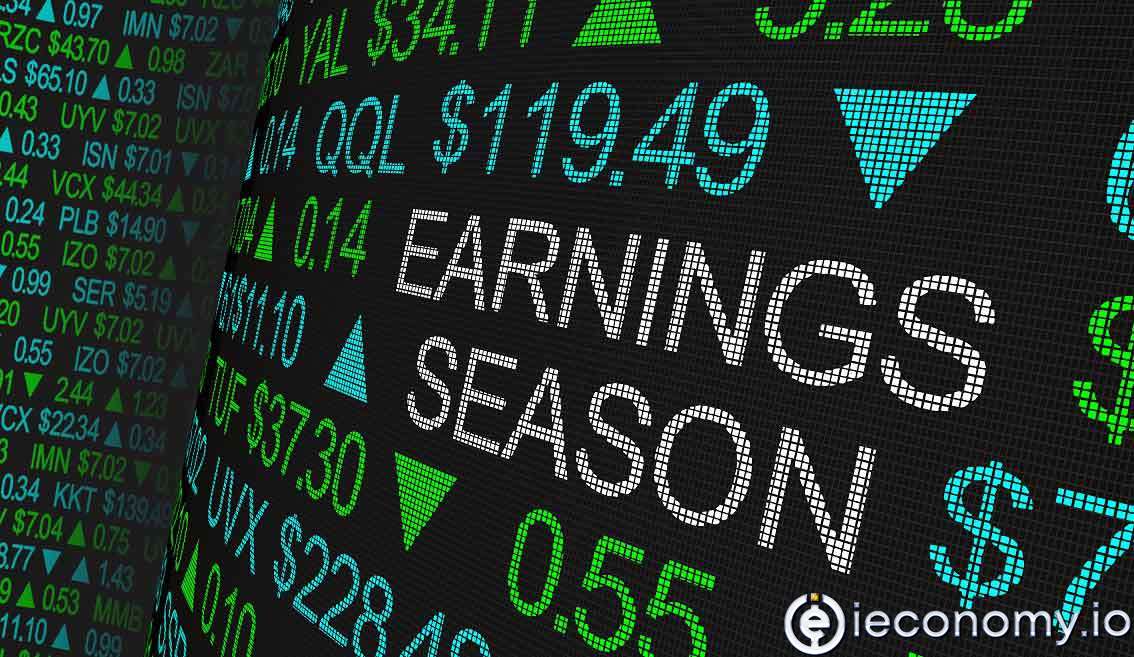7364
0
What is Earnings Season and What to Consider in Earnings Reports?
Earnings season is a period each fiscal quarter, usually lasting several weeks, when many of the largest listed companies release their latest

Yazar: Charles Porter
Yayınlanma: 27 Temmuz 2022 08:25
Güncellenme: 23 Şubat 2026 12:51
What is Earnings Season and What to Consider in Earnings Reports?
WHAT IS EARNINGS SEASON AND WHY IS IT IMPORTANT?
Earnings season is a period each fiscal quarter, usually lasting several weeks, when many of the largest listed companies release their latest financial accounts. An earnings report consists of revenue, net income, earnings per share (EPS) and forward-looking outlook, as well as many other data points that can help provide investors with insight into the company's current health and outlook. This information can be found on sec.gov, in various financial publications and on companies' own websites. Earnings season is important because it helps market participants glean information from the companies they track along with the broader index. For example, a strong Apple (AAPL) earnings report could see traders become bullish on Nasdaq 100 futures.WHEN IS EARNINGS SEASON & WHEN DO REPORTS COME OUT?
Earnings season usually takes place a few weeks after each quarter ends (December, March, June, September). In other words, earnings season starts in January-February (Q4 results), April-May (Q1 results), July-August (Q2 results) and October-November (Q3 results), and the unofficial start of earnings season is usually when major US banks release their results.3 THINGS TO LOOK OUT FOR IN COMPANY EARNINGS REPORTS
There are a number of factors to look for in corporate earnings reports. Investors should pay most attention to the performance of the largest 'bellwether' stocks, understand the significance of earnings stagnation in a particular stock, and recognize how a stock's earnings announcement may affect a related index depending on the weighting of that security.1. Performance of Bellwether stocks
When analyzing company earnings, it is important to pay attention to 'bellwether' stocks, which can be seen as an indicator for the performance of the macro-economy. While the status of a bellwether stock can change over time, the largest and most established companies are typically considered bellwether stocks.2. Earnings recession
An earnings recession is defined as two consecutive quarters of year-on-year declines in corporate profits. However, while earnings are an important factor in stock market returns over the long term, an earnings recession does not necessarily coincide with an economic recession. The chart below shows that only two of the last six US earnings recessions have coincided with an economic recession. Blue circles represent places where earnings recessions have occurred without an economic recession, while red circles represent places where both earnings and economic recessions have occurred.
3. Earnings and stock index weighting
Traders should understand that when trading earnings, certain stocks will have a greater impact on the broader index relative to their index weighting. For example, when trading on the Dow Jones, Boeing's earnings announcement will have quite an impact on the index, while Visa will probably not have as much impact due to the former's 9.49% weighting versus the latter's 4.41% weighting, as shown in the chart below. This highlights the importance of paying close attention to the leading stocks and how they may affect the broader stock index.TRADING DURING EARNINGS SEASON: TOP TIPS
1. Know the 'expected' outcomes
It is important to be aware of 'expectations' for revenue/sales and earnings per share (EPS) figures, as a company's share price reaction can often be determined by how much it exceeds or misses the sum of analysts' expectations.2. Be on the lookout for surprise announcements
Surprise announcements that coincide with an earnings report can also affect a company's share price. These can include share buybacks/share repurchase programs and company guidance.3. Be aware of spillover effects between stocks
As an example of a spillover effect, if an investor has a chipmaker stock in their portfolio (e.g. Dialog Semiconductor), earnings from Apple could have a large impact on the stock. As a result, it is important to evaluate related stocks as they can reveal the outlook for a sector and thus trigger a possible sector rotation.4. Consider the volatility that an expected move will carry
Calculating the directional 'expected move' for a stock in reaction to a binary earnings event can be a troublesome endeavor. Alternatively, a perspective that considers volatility can prepare investors for a significant move without positioning them on the wrong side of the final outcome.EARNING SEASON: KEY TAKEAWAYS FOR INVESTORS AND STOCK MARKET TRADERS
In summary, earnings season can be an influential factor in an investor's experience. Be sure to keep track of when key earnings will be announced for each company so that you can plan proactively. Be aware of how bellwether stocks, potential earnings recessions and stock index weightings can affect price movements. Master the expected outcomes for each stock, pay attention to larger potential swings for analytical or strategic purposes, and understand how the performance of one stock can affect another (or the index as a whole). Following these basic tips can help the investor try to get through the earnings season and get through the period more consistently.İLGİLİ HABERLER





European stocks soared and focus shifted to German retail sales after Powell's speech!

Forex Signal For TRY/USD: Inflation Slowdown in November.

Forex Signal For GBP/USD: Bullish Trend Still Not Breaking While Recovery Continues.

Forex Signal For EUR/USD: Starry US Data Points to Higher Fed Increases.

Forex Signal For BTC/USD: Downside Continues as Bitcoin Recovery Moves Less.
En Popüler Haberler
Yorum Yap
Yorumlar
Henüz yorum yapan yok! İlk yorumu siz yapın...